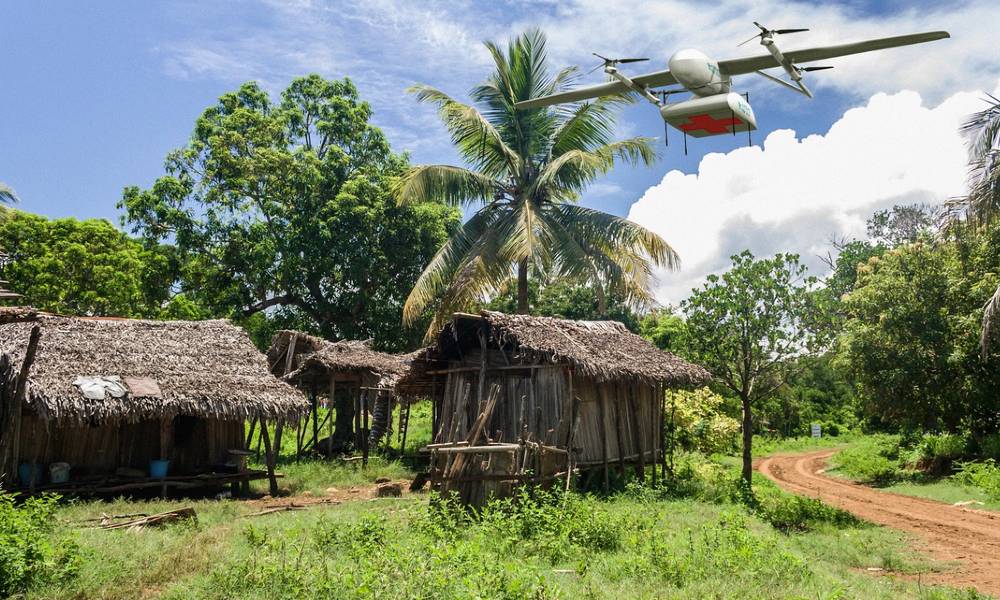
Gates Foundation funds WeRobotics to help WHO’s use of medical drone delivery
The purpose of this project is to directly inform WHO’s operational understanding of drone delivery services to transport patient samples.

The Bill & Melinda Gates Foundation is funding WeRobotics to expand the World Health Organization’s (WHO) understanding and use of drone delivery. This project has multiple facets, which are being advanced and coordinated by WHO’s African Regional Office (AFRO). The main component that WeRobotics is working on currently includes continuous drone deliveries in Ghana with Zipline, WHO Ghana and Ghana Flying Labs, and Madagascar with Aerial Metric, WHO Madagascar, and Madagascar Flying Labs. They have just completed the full set of deliveries in Northern Ghana with Zipline and the team and will soon begin deliveries in Northern Madagascar with Aerial Metric and Team.
The purpose of this project is to directly inform WHO’s operational understanding of drone delivery services to transport patient samples. This means gaining a clear understanding of the operational workflows, technical and regulatory requirements, costs, and time-savings from using existing drone delivery systems such as Zipline’s in Ghana and Aerial Metric’s in Madagascar. While the project serves as a comparative analysis between drone delivery in Ghana and Madagascar, its purpose is not to suggest that one system or model is better than the other (they are very different albeit complementary). Instead, the aim is to build WHO’s internal understanding of drone delivery services to make the most of the various systems and models that already exist.
The WeRobotics team hopes to share these insights later in the year, along with the design of our operational study, once we’ve completed all drone deliveries and analyzed all the data collected. In the meantime, they will also begin the next phases of this multi-year project with WHO/AFRO and the Gates Foundation. More details on these projects are expected to be shared towards the second half of 2021 once it is in operation.
WHO’s leadership, dedication, and commitment to this project continue to make all the difference and explain why this project has taken off quickly. Ghana and Madagascar Flying Labs are also playing instrumental roles in this project. The team has said they are very grateful for the opportunity to work with all these strong partners and to learn from them as we all continue to wrestle with a global pandemic.

